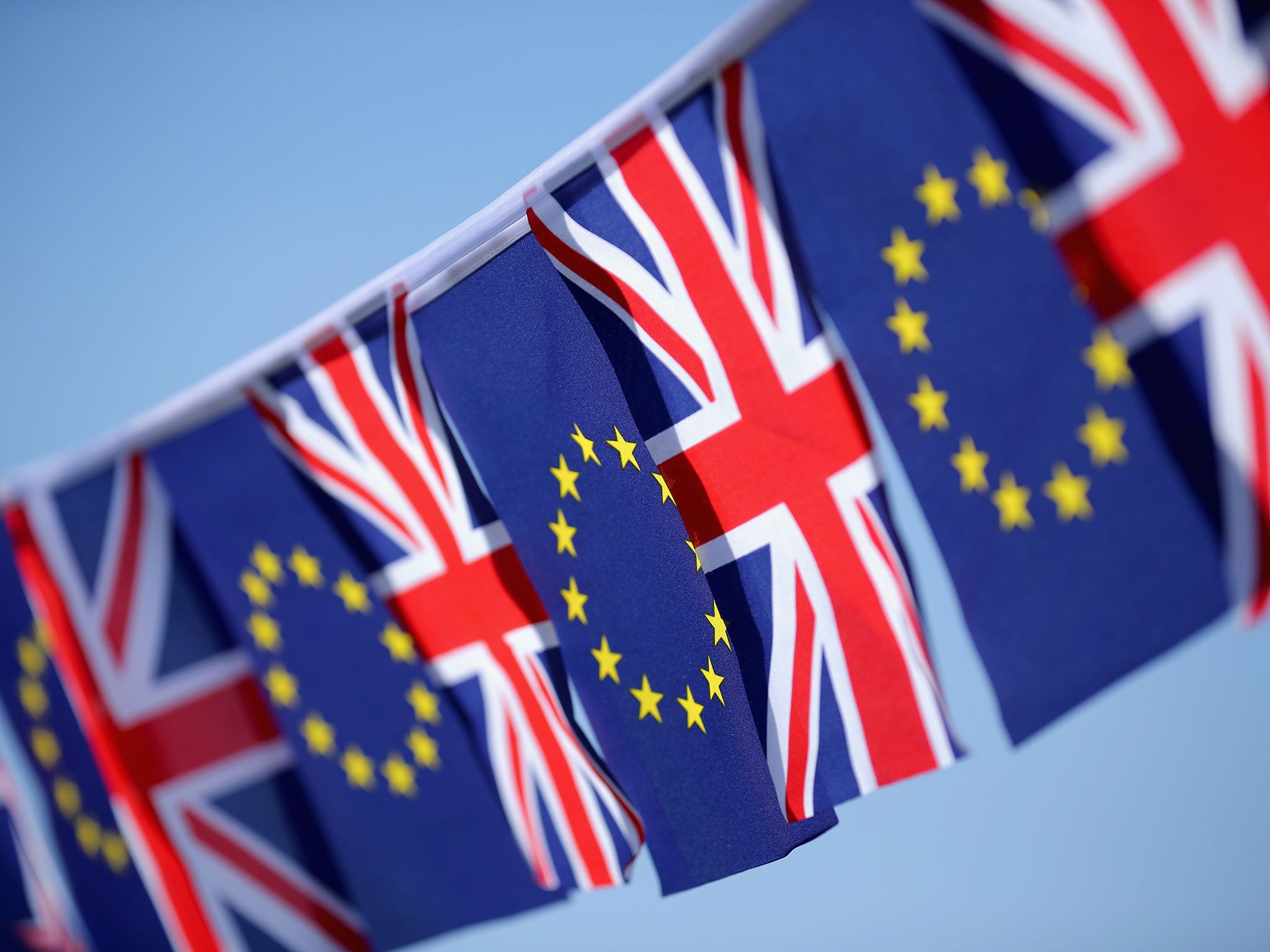NIESR warns of Brexit 'shock' to UK economy
The think tank's economic model suggests that by 2030 UK GDP would be between 1.5 per cent and 7.8 per cent smaller relative to a world in which Britain stayed in the trading bloc

Your support helps us to tell the story
From reproductive rights to climate change to Big Tech, The Independent is on the ground when the story is developing. Whether it's investigating the financials of Elon Musk's pro-Trump PAC or producing our latest documentary, 'The A Word', which shines a light on the American women fighting for reproductive rights, we know how important it is to parse out the facts from the messaging.
At such a critical moment in US history, we need reporters on the ground. Your donation allows us to keep sending journalists to speak to both sides of the story.
The Independent is trusted by Americans across the entire political spectrum. And unlike many other quality news outlets, we choose not to lock Americans out of our reporting and analysis with paywalls. We believe quality journalism should be available to everyone, paid for by those who can afford it.
Your support makes all the difference.The UK economy would experience a “significant shock” if it left the European Union, the respected National Institute of Economic and Social Research has said.
Unveiling the results of its major analysis of the possible economic impact of Brexit, the think tank said that in the short run UK GDP growth would be 1.9 per cent in 2017, rather than the 2.7 per cent that could be expected if Britons voted to remain.
NIESR’s economic model also suggested that in the longer run UK GDP would be between 1.5 per cent and 7.8 per cent smaller by 2030 relative to a world in which Britain stayed in the trading bloc.
As with previous estimates of the cost of Brexit from the Treasury and the OECD, the divergence in possible outcomes reflects the spread of possible trade arrangements Britain could have with the rest of the EU post Brexit, ranging from a close and preferential Norway-style deal to a very basic World Trade Organisation-style relationship.
Last month the Treasury’s own forecasting exercise said that GDP could be between 3.4 and 9.5 per cent smaller by 2030 than it otherwise would be. An analysis by the OECD showed a hit to GDP ranging from between 2.7 per cent and 7.7 per cent, which it labelled a “Brexit tax”.
NIESR said that in the short run business and financial uncertainty over Brexit would likely push up borrowing costs across the economy, impeding growth. The main channels through which Brexit would impact growth in the long term would be reductions in trade volumes and a drop in foreign direct investment into Britain, it argued.
NIESR added that exports to the EU would likely fall by between 10 per cent and 29 per cent by 2030 compared to world where Britain stayed in the bloc. It said while unemployment would not be higher by 2030 relative to the counterfactual scenario, real wages would take a hit. It said real consumer wages would be between 2.2 per cent and 7 per cent lower outside the EU than remaining in by the end of the next decade.
“The potential downside risks of a decision to leave, while not susceptible to precise quantification, appear large” said Jonathan Portes and Angus Armstrong of NIESR. “Risks are also attached to remaining in the EU, but appear easier to manage”.
Join our commenting forum
Join thought-provoking conversations, follow other Independent readers and see their replies
Comments